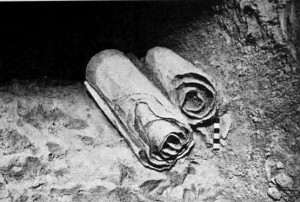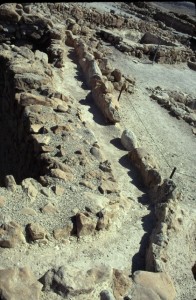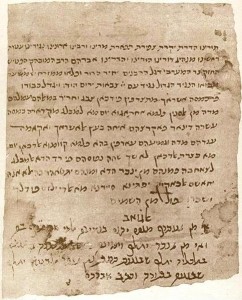Eruv and Sectarianism in Ancient Judaism: Sectarian Prohibitions on Carrying from Domain to Domain
The Zadokite Fragments (Damascus Document) 11:7-9 preserves the following prohibition:
No one shall carry (anything) from the house to the outside, or from the outside into (the) house. And if he is in the sukkah, let him not carry (anything) out from it or bring (anything) into it.
(cf. 4Q270 6 v 13-14 and 4Q271 5 i 3-5 for the same text.) We should note at the outset that this text, originally known from the Cairo genizah manuscript, is also preserved in two manuscripts found at Qumran. The first clause of this law is the prohibition of carrying from the private into the public domain or vice versa. From the wording, it is clear that this law constitutes a rephrasing of Jer. 17:21 and 22.
M. Shabbat 1:1 seems to be similarly based. Although this Mishnah is linguistically tied to the Jeremiah passage, the Jerusalem Talmud contains an argument about its derivation. Some amoraim persist in saying that the law stems from Exodus 36:6. This passage refers to Moses’ command to the people to stop bringing contributions for the building of the tabernacle. Clearly, this cannot be the origin of this law. This derivation may… Continue reading



